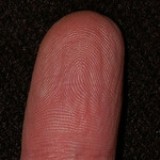
The Association for Civil Rights in Israel has joined a case in the National Labor Court as an “amicus curiae” dealing with the use of a biometric time clock in the workplace.
The Sderot Municipality recently began to require its employees to use a biometric time clock in order to signal their attendance at work, and were ordered to provide their fingerprints and “agree” to the establishment of a database containing their biometric data. Three workers in the education department refused to participate in this scheme, and were punished by having their wages withheld. The workers, represented by Attorney Jonathan Klinger, turned to the Be’er Sheva District Court and requested that the city refrain from withholding their wages whilst litigation was taking place. The request was denied leading to the present appeal to the National Labor Court.
On July 21, 2013, ACRI provided the court with its position through an amicus curiae brief. In the document, prepared by Attorneys Avner Pinchuk and Tal Hassin, it is made clear that many employers in Israel violate their workers’ right to dignity and privacy, but that this disturbing reality is not sufficiently reflected in the judgments of the Labor Courts. Employees do not often complain about their injuries, and a rarely able to overcome the hurdles to launching a suit. As such, for every judicial invalidation of an “agreement” allowing for the invasion of employees’ privacy, there are dozens, if not hundreds, of similar cases that do not arrive before the court. Cases in which employees are manipulated or forced to give their “consent”, are no less grave than and deserve the same response.
The decision of the Be’er Sheva District Labor Court to reject the request of the workers to temporarily prevent the withholding of their wages, reinforces the power differential between employers and employees and places them at even more acute disadvantage. Without the temporary relief that would allow them to receive a full wage during the months or years of litigation, the financial and emotional burden of conducting negotiations with their employers may mean they will need to give up on their efforts to defend their rights. Consequently, the chance the litigation will reach a conclusion and provide a legal precedent regarding biometric time clocks is significantly shortened. This decision is also likely to dissuade others who are weighing up whether or not they possess the courage to stand up against the violation of their privacy and dignity in the workplace.
Related Materials
ACRI Position Paper – Objections to Governmental Biometric Database
High Court Criticizes State’s Preparation for Government Biometric Database







